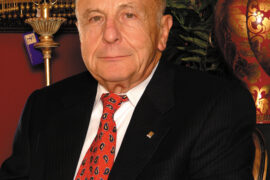By Jack Houvouras
HQ 90 | SUMMER 2015
“People try to put us down, talking ’bout my generation.” – The Who
IT SEEMS INEVITABLE that no matter what your taste in music, at one time or another you will be forced to defend your palette. Such was the case recently when some friends decided to attack the era that most influenced my preferred personal playlist – the 1980s. And so to those friends, and any others who harbor disdain for the music of my generation, I hereby use the bully pulpit of this column to offer the following defense:
I would begin by pointing out that while, admittedly, there were some atrocious affronts to both music and fashion in the 1980s, the decade also produced plenty of great rock ‘n’ roll. My favorite band, Guns N’ Roses, was unleashed during this period to rave reviews and record-breaking success. In fact, the best-selling debut album of all time doesn’t belong to The Beatles, The Rolling Stones or Nirvana. Instead, Appetite For Destruction, GnR’s raw, gritty and powerful collection, holds that distinction.
The 1980s may be lambasted for its rise in the use of digital recording techniques, including the use of synthesizers, but it also gave us the post-punk sound of U2. I could point to the band’s 22 Grammys, its 150 million records sold worldwide, or Rolling Stone ranking U2 as the No. 22 Greatest Artist of All Time, but I think the Irish rocker’s body of work speaks for itself.
The decade also produced one of the greatest all-around musicians in rock history – Prince. The music prodigy, who taught himself to play every instrument in the studio, is renowned for his ability to blend a wide array of styles including rock, R&B, soul, funk, hip-hop and jazz, just to name a few. He is universally recognized as a musical genius.
The greatest-selling album in history? Once again it doesn’t belong to The Beatles … or Elvis Presley or Pink Floyd. That rarified honor goes to Thriller by Michael Jackson. In fact, the album has sold nearly twice as many copies as its closest rival.
My era was also defined by the reggae-infused sound of The Police; working-class rocker Bruce Springsteen; the birth of alternative rock in the form of REM; and the ascent of several singular female talents including Pat Benatar, Joan Jett and Cyndi Lauper. Finally, the ’80s also saw hip-hop firmly take root in the form of such bands as Run DMC, N.W.A, Public Enemy and the Beastie Boys.
I conclude my defense of the 1980s by pointing out the fairly obvious – every era has its highs and lows. It would be foolish and elitist to dismiss an entire decade based on its worst contributions. After all, every generation has something innovative to offer. As George Gershwin said, “True music must repeat the thought and inspirations of the people and the time.” I contend that the musicians from my era did exactly that, and with both style and substance.





